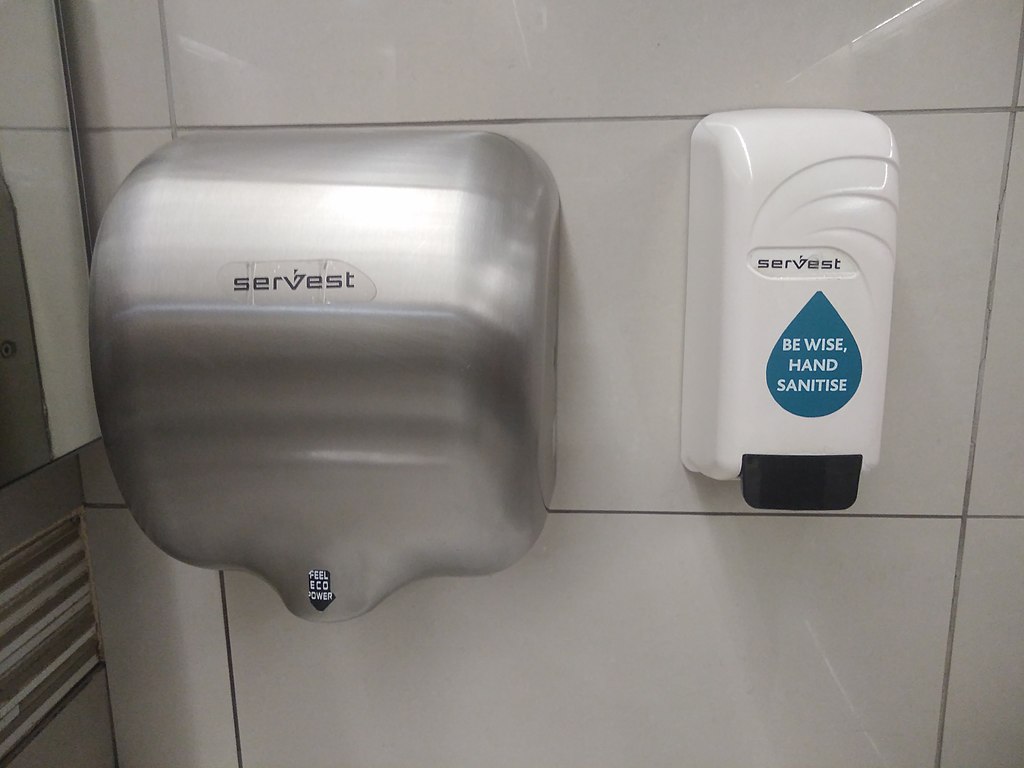Rubbing hands with hand sanitizer is a frequent habit for many, but are we becoming too clean for our own good? By extension, are we inadvertently creating an environment which is dangerous for children’s developing immune systems? Exploring the ethics of the rise of sanitizing products in our society is necessary in order to determine a healthy balance between taking advantage of antibacterial advancements without overusing these products and limiting our bodies’ exposure to bacteria, and preventing the development of superbugs.
Over the past few years the discussion surrounding over-cleanliness has risen in prominent news organizations including The New York Times, NBC News, and NPR. Scientists have been researching the effects of taking long showers, changing clothes frequently, and washing hands regularly on our overall health. Microbiologists such as Mary Ruebush are emphasizing that our stringent hygiene routines are having a negative effect on our health, by increasing the risks of developing allergies and weakening our immune systems. This of course, does not mean that by taking a shower every day you are bound to get ill, but rather that the combination and overuse of too many antibacterial products both on your body and in your living environment can wipe out even beneficial bacteria, resulting in a possible compromise to your health.
Over-cleanliness is especially harmful to young children and can be explained using the “Hygiene Hypothesis” developed by epidemiologist David Strachan in 1989. This hypothesis as described in a BBC article, states that exposure to infections early in life provides a strong defense against allergies into adulthood. Unbeknownst to this knowledge parents are getting stricter about the environments they exposure their children to, unlike previous generations of parents who were more lenient. In August of 2016, a study published in the New England Journal of Medicine compared the immune profiles of both Amish children growing up on small family farms to those of Hutterite children who grew up on large industrialized farms. The Amish children lived in a microbe rich environment and due to their increased exposure to factors such as barn dust, had relatively low incidences of asthma. Hutterite children on the other hand, did not display the same low incidence of asthma, illustrating that exposure to diverse microbe populations is beneficial to children’s overall health.
Beyond the benefits of exposure to dust, Jack Gilbert a co-author on the New England study as well as author of the book Dirt is Good argues in an NPR article that parents should allow children to get dirty more frequently. Gilbert’s primary concern is with the immediate sterilization of children after playing outside or with animals. A common example is, “if they’re interacting with a dog, and the dog licks their face, that’s not a bad thing. In reality, that could be extremely beneficial for the child’s health.” In order to minimize his concerns regarding over-cleanliness in modern children’s home environments, Gilbert suggests that parents should protect children by encouraging them to “eat more leafy vegetables, a diet rich in fiber as well as reducing the sugar intake, but generally allowing your kids to experience the world. As long as they are properly vaccinated, there shouldn’t be any threat, and they will actually get a stronger and more beneficial exposure.”
In a world where bacteria are demonized, and products promise to eliminate 99.9% in one quick swipe, parents must become well informed on the adequate amounts of antibacterial soaps, sanitizers, and wipes to use. Firstly, it is essential to remember that not all antibacterial products are harmful for children or adults. An article published in the Chicago Tribune by Brian Sansoni seeks to remind us of the various ways in which antibacterial soaps can be used safely and beneficially by consumers. These soaps, as emphasized by Sansoni, “eliminate bacteria that can lead to skin infections, intestinal illnesses, or other commonly transmitted diseases;” these products are essential in instances of close contact with highly infectious individuals as well as settings of food preparation, particularly in schools. This article is a useful tool in reminding parents, school teachers, and especially health care professionals that responsible use of these products is highly advisable, and the complete dismissal of these important advancements could result in increased disease transmission particularly in places where there are vulnerable individuals.
Finally, understanding the relationship between consistent use of antibacterial soaps and increasing antibacterial resistance is key to the prevention of superbugs. An article from Science in The News at Harvard University explains antibiotic resistance in reference to the additive Triclosan (which is present in most consumer hand soaps and toothpastes). Triclosan has not been proven to be harmful to humans, but there is evidence to suggest it may be contributing to increasing risk of drug resistant bacteria. (For a clear explanation of how Triclosan works, this link provides a helpful diagram.) As a widespread issue this could become harmful if bacteria populations are exposed to Triclosan repeatedly and soon develop mutations to survive the exposure, this could influence the effectiveness of antibiotics prescribed by doctors as well. As this article describes, “limiting the use of Triclosan to only products where it will be most effective could be very important.”
Overall, creating an environment for children where the mantra “Dirt is Good” is counterbalanced by an appreciation for healthcare advancements utilized responsibly is the most effective path to encourage parents to use these antibacterial products sparingly.

